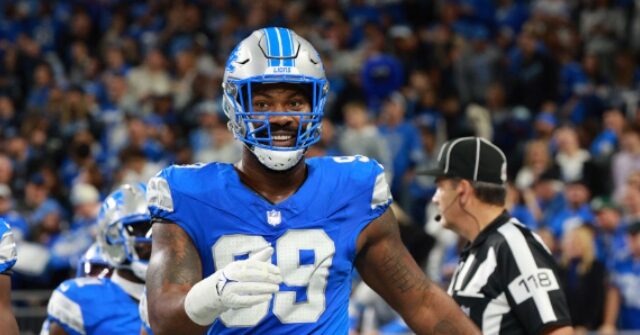The growing trend of “Trump Dance” celebrations among NFL players has stirred controversy, especially among liberal observers, who might expect the league to intervene and prohibit such displays. However, the NFL has made it clear that it has “no issue” with the celebrations and does not plan to stop players from showcasing their moves. League spokesman Brian McCarthy confirmed that the NFL allows celebratory dances as long as they do not delve into excessive profanity or sexual content. This hands-off approach indicates that the league is reluctant to act against players for expressing their support for former President Trump through dance.
The distinction between the Trump Dance and Joey Bosa’s MAGA hat incident underscores the NFL’s complex stance on personal expression. While touchdown celebrations are generally permissible, the league enforces a strict guideline that prohibits the display of personal or political messages through attire. This creates a scenario where Bosa was penalized for wearing a MAGA hat but not for partaking in MAGA-themed celebrations on the field. The inconsistency highlights the league’s attempts to navigate the nuances of personal expression in a politically charged environment without alienating fans or players.
In light of the Trump Dance’s emergence, several players, including Brock Bowers, Nick Bosa, Za’Darius Smith, Malcolm Rodriguez, and Calvin Ridley, have adopted similar celebratory moves. The league’s hands-off approach indicates a desire to avoid conflict, particularly considering the potential backlash from Trump, who could leverage his platform to criticize the NFL if they attempted to impose restrictions on his supporters’ celebrations. Additionally, the NFL’s historically tepid response to the Kaepernick protests, which were overtly political, complicates any justification for banning the Trump Dance.
The NFL appears to be taking a calculated approach in its handling of these celebratory displays. As McCarthy mentioned, the Trump Dance is not disruptive to the game nor does it violate the league’s rules pertaining to profanity or vulgarity. This clear distinction makes it challenging for the NFL to justify any attempt to restrict Trump-themed celebrations, especially when juxtaposed with the Kaepernick protests that were explicitly political and aimed at addressing systemic issues. The lack of overt political messaging in celebratory dances provides the NFL with a rationale to refrain from intervention.
Moreover, the league’s previous experience with Trump’s critical remarks and the subsequent decline in viewership during his criticisms suggest that remaining in Trump’s good graces may be beneficial for the NFL. According to Front Office Sports, Trump’s comments during the Kaepernick protests may have contributed to significant drops in NFL ratings during the 2016 and 2017 seasons. This history likely informs the NFL’s cautious handling of any situation that could be perceived as provocative against Trump or his supporters.
In summary, the NFL’s decision to permit the Trump Dance celebrations illustrates a balancing act between allowing player expression and avoiding political entanglements. The league recognizes that imposing restrictions could lead to backlash, not only from players and fans but also from a political figure like Trump, who has a substantial influence over a segment of the sport’s audience. With a clear demarcation between celebratory dances and overtly political statements, the NFL has opted for a permissive stance, allowing players to express themselves within the confines of celebratory norms while maintaining a neutral facade amid a polarized political climate.

